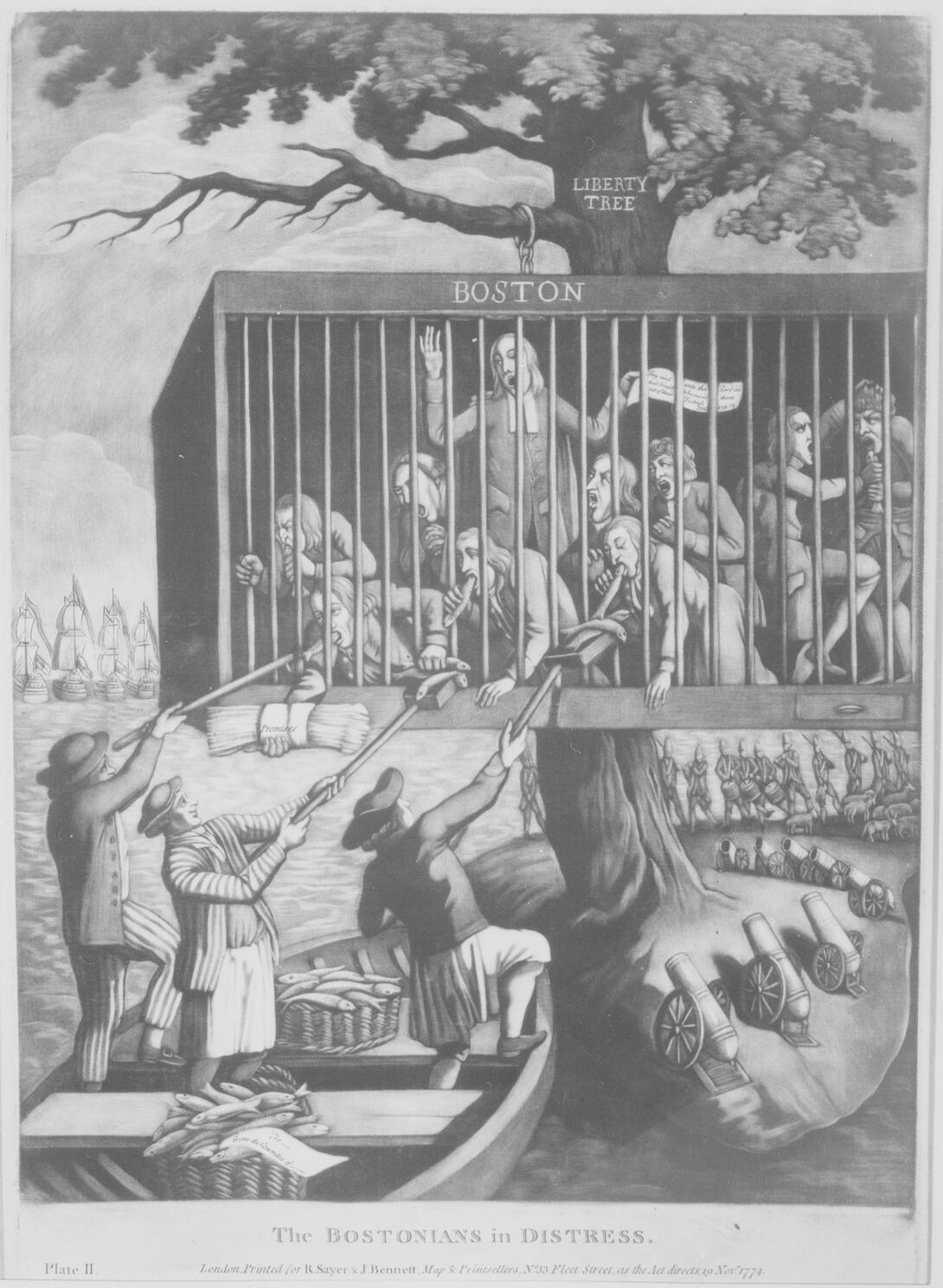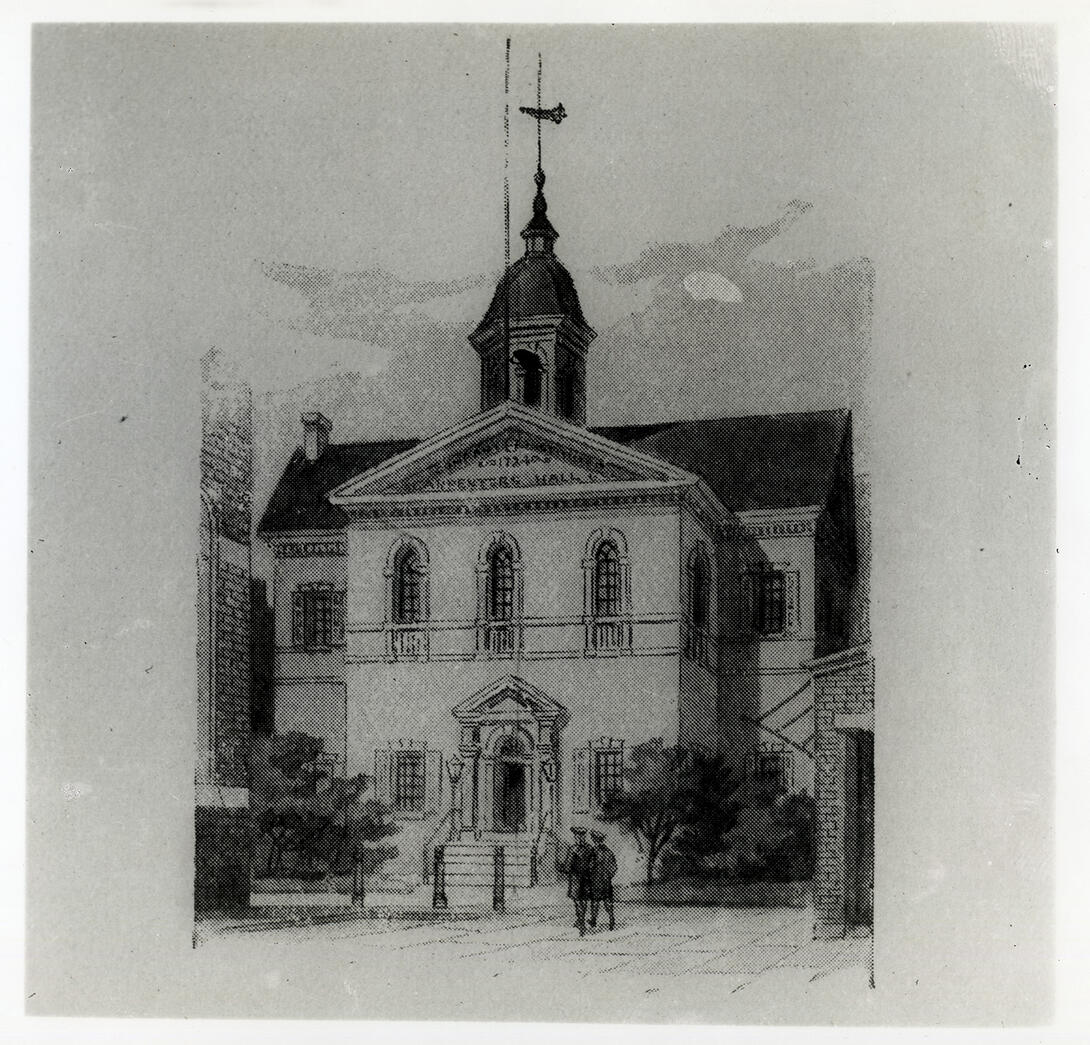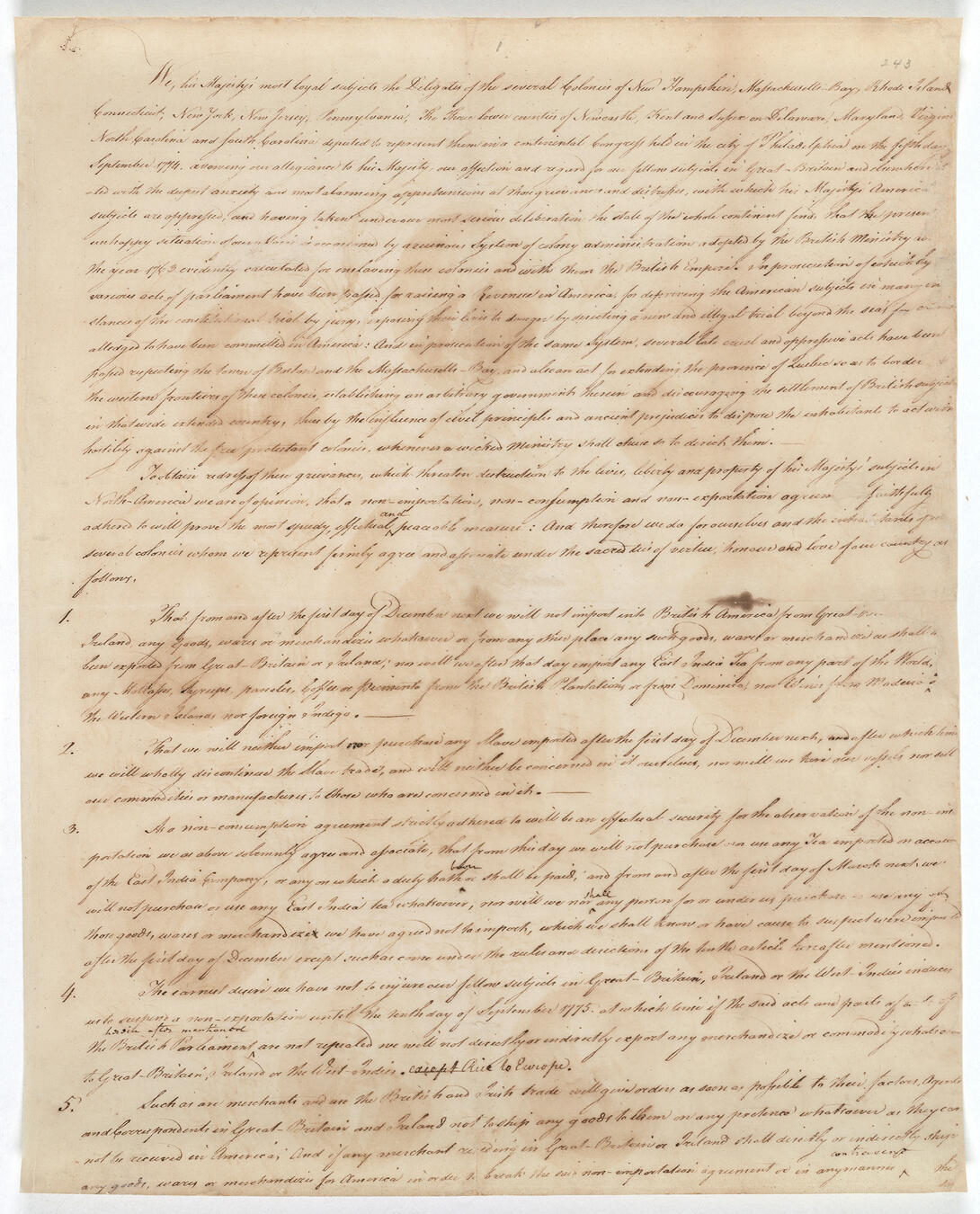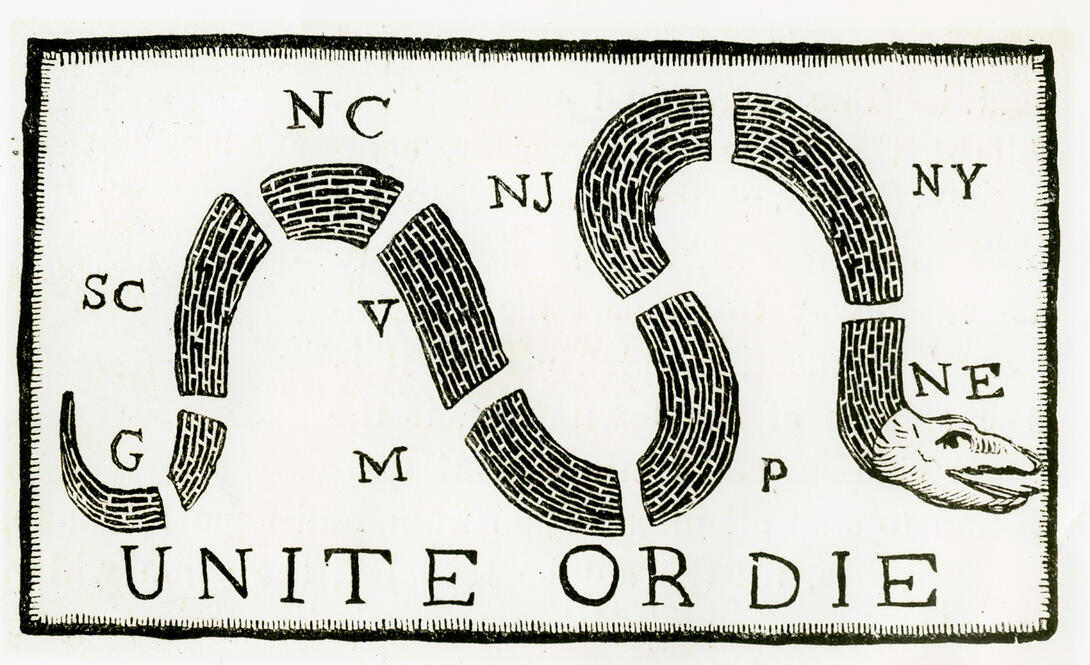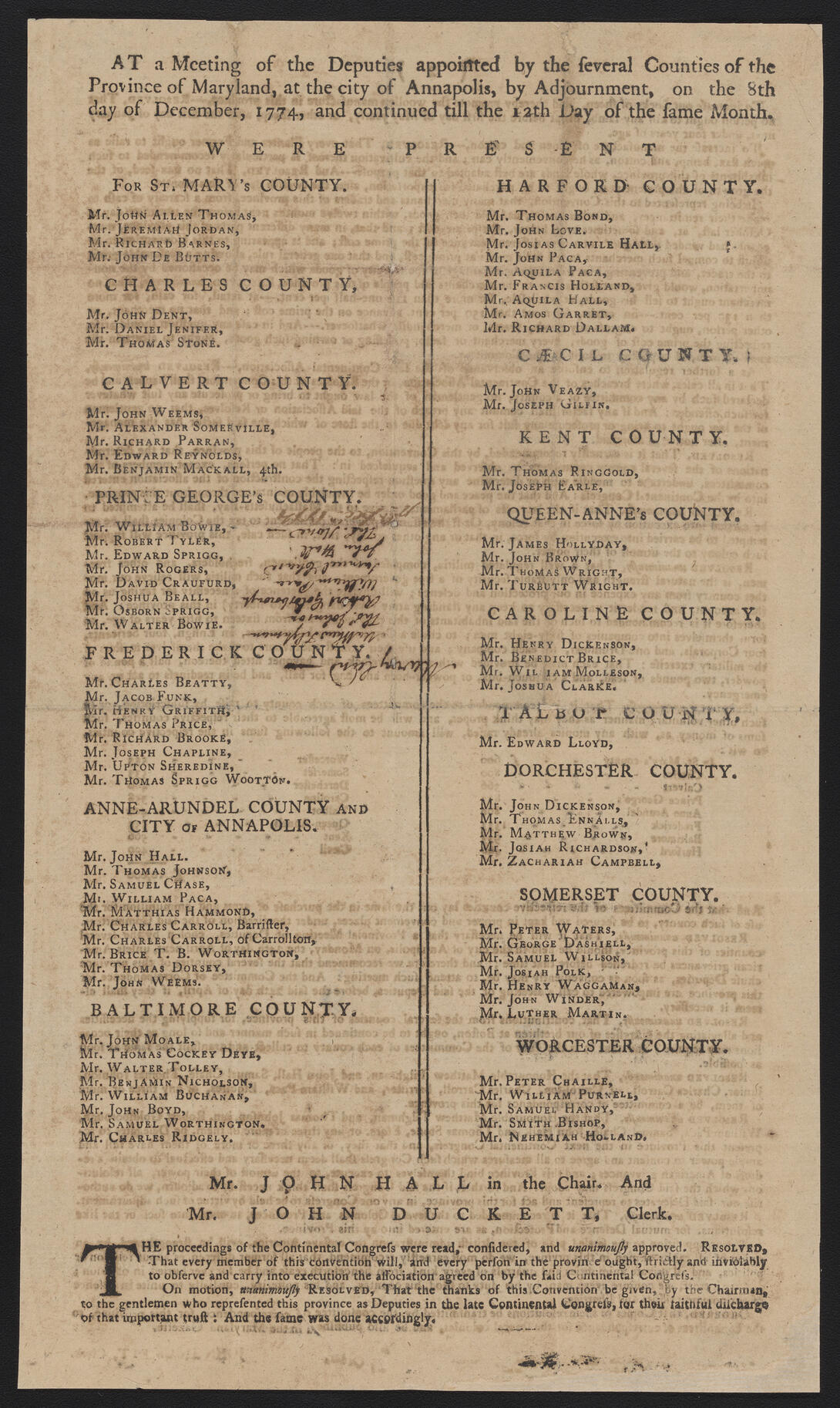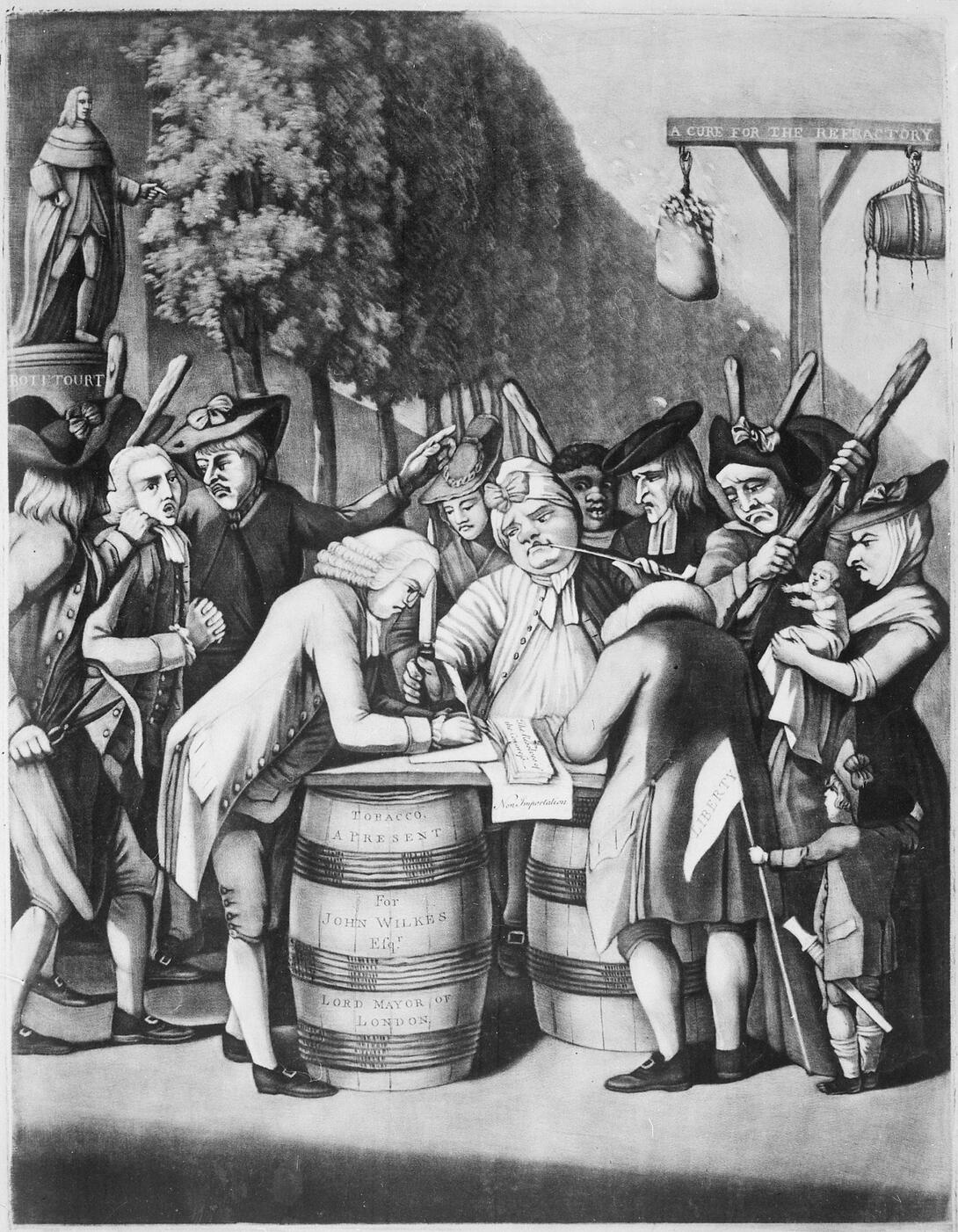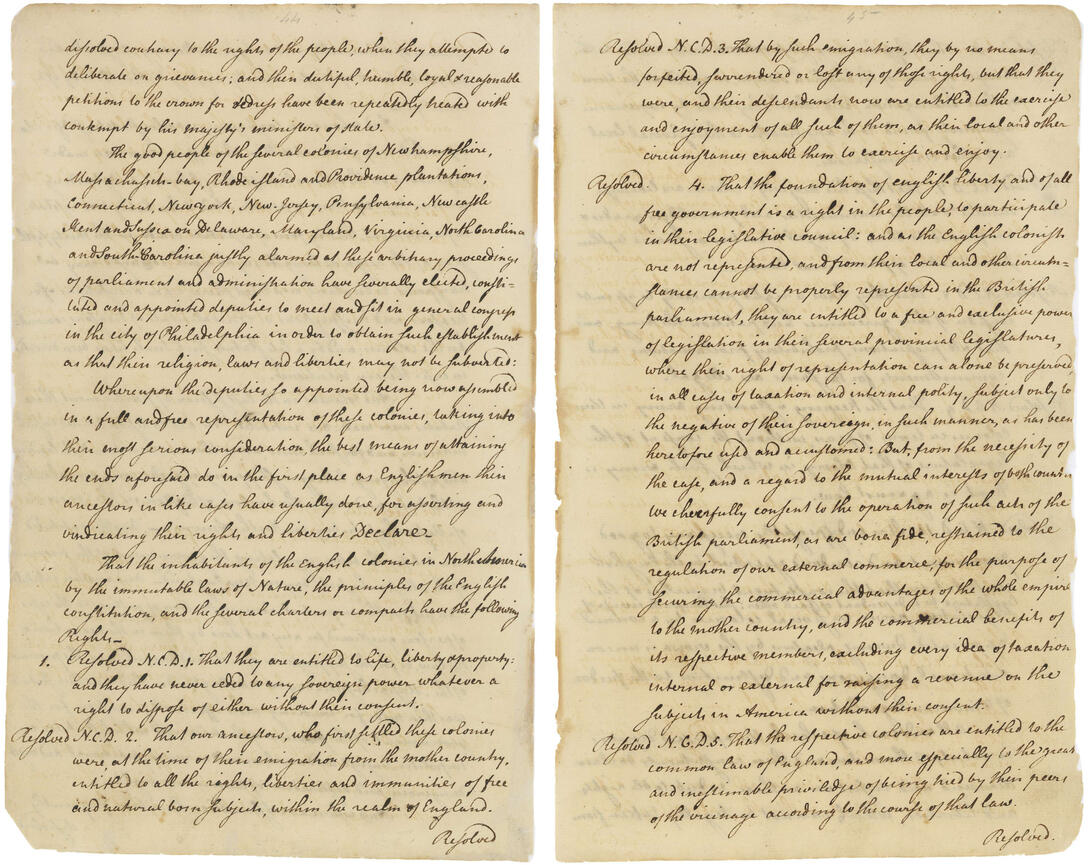First Continental Congress
The First Continental Congress convened to discuss united resistance to the Coercive Acts and issued a Declaration of Rights and the Articles of Association. Recognizing that unity would be essential to forcing a repeal of the so-called "Intolerable Acts," the Continental Association formed local committees to put economic pressure on Parliament–and on their neighbors–to submit to patriotic boycotts.
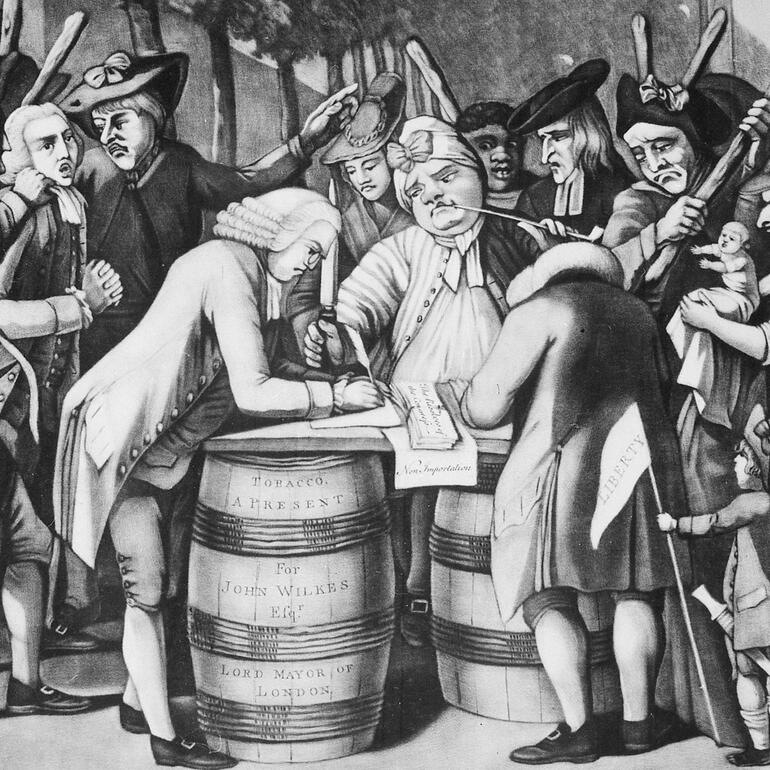
-
After Boston’s “tea party,” the British Parliament passed a series of Coercive Acts in 1774 to punish the city and reassert its authority over the colonies. Deemed “intolerable” by Americans, the colonies responded by sending delegates to Philadelphia, Pennsylvania, to devise a united response to the Coercive Acts.
Known today as the First Continental Congress, delegates debated and adopted policies aimed at defending colonial rights in the British Empire. Although the Congress met in the hope of peacefully repairing the fracturing imperial relationship, the measures it passed failed to avert war and a complete break with Great Britain.
The sailors in this political cartoon represent the colonies coming to the aid of Bostonians suffering under Parliament’s Coercive Acts. Copy of "The Boston...Read more
The sailors in this political cartoon represent the colonies coming to the aid of Bostonians suffering under Parliament’s Coercive Acts. Copy of "The Bostonians in Distress" mezzotint attributed to Philip Dawe, 1774
Read less
Records of Commissions of the Legislative Branch -
The First Continental Congress convened in Carpenters Hall, Philadelphia, from September 5 to October 26, 1774. Over seven weeks, the 56 delegates representing 12 diverse colonies (except Georgia) passed a series of measures to unify colonial resistance to the Coercive Acts. No one advocated for American independence.
Although delegates still hoped to reconcile with Great Britain, they also set a date for a Second Continental Congress if their grievances remained unredressed. Before then, war would erupt between Britain and its colonies.
-
The First Continental Congress believed that American economic unity was essential to forcing a repeal of the Coercive Acts. On October 20, 1774, the delegates signed the Articles of Association–a phased nonimportation, nonexportation, and nonconsumption agreement. More commonly known as the Continental Association, the articles directed colonists to exercise frugality, cease trade with Great Britain, and "wholly discontinue the slave trade."
To apply maximum pressure on the British economy (and Parliament), the articles also called for the establishment of local committees to enforce the Continental Association throughout the colonies. The policy was highly effective. In the first six months of 1775, the value of British imports to America fell from £3 million to £220,000.
Articles of Association (Continental Association), Page 1, October 20, 1774
Records of the Continental and Confederation Congresses and the Constit...Read moreArticles of Association (Continental Association), Page 1, October 20, 1774
Read less
Records of the Continental and Confederation Congresses and the Constitutional Convention -
All free women and men were urged to join the Continental Association. To enforce the British trade boycott, Congress directed the formation of local committees "to observe the conduct of all persons." When necessary, the committees were charged with publishing the names of violators so that neighbors could "break off all dealings with him or her" until they joined the Association.
The Continental Association became a powerful network that promoted economic and eventually military unity during the American Revolution. However, its tactics alienated some colonists. Those most ardently opposed adopted the term "Loyalist" for the first time.
Modeled after Benjamin Franklin’s 1754 cartoon to unite the colonies against Great Britain’s enemies in the Seven Years War, the segmented snake was repurposed t...Read more
Modeled after Benjamin Franklin’s 1754 cartoon to unite the colonies against Great Britain’s enemies in the Seven Years War, the segmented snake was repurposed to promote colonial unity against British tyranny. Copy of "Unite or Die" reproduction, date unknown
Read less
Records of Commissions of the Legislative Branch -
Maryland was one of the first colonies to direct "every person in the province" to implement the Continental Association. However, many colonists did not wait for provincial permission to act. Eligible voters throughout the colonies elected local committees of observation and inspection–as many as 1,000–to enforce the Continental Association's provisions. It was the first opportunity for many of the elected men to participate in self-government.
Proceedings of the Maryland Provincial Convention, December 8–12, 1774
Records of the Continental and Confederation Congresses and the Constitution...Read moreProceedings of the Maryland Provincial Convention, December 8–12, 1774
Read less
Records of the Continental and Confederation Congresses and the Constitutional Convention -
This satirical cartoon depicts a diverse crowd of common people pressuring elite Virginians to sign the Continental Association. The presence of women reflects their centrality–as conspicuous nonconsumers–to the boycott. Some wealthy colonists who profited from the British trade were reluctant to join the Association. The barrel of tar and bag of feathers hanging from a gallows in the background suggests a possible consequence if they refused.
Copy of "The Alternative of Williams-Burg" mezzotint attributed to Philip Dawe, February 16, 1775
Records of Commissions of the Legislative Branch...Read moreCopy of "The Alternative of Williams-Burg" mezzotint attributed to Philip Dawe, February 16, 1775
Read less
Records of Commissions of the Legislative Branch -
On October 14, 1774, delegates approved a series of resolves which defined colonists' rights and justified resistance to British policies that violated them. It also announced Congress's plan to adopt the Continental Association and prepare addresses to the King and British people. Parliament was excluded since the colonies denied its authority. Much of Congress's statement of rights foreshadows the future Declaration of Independence.
Rough Journals of the First Continental Congress, Declaration and Resolves, October 14, 1774
Records of the Continental and Confederation Congresse...Read moreRough Journals of the First Continental Congress, Declaration and Resolves, October 14, 1774
Read less
Records of the Continental and Confederation Congresses and the Constitutional Convention -
Roots of Rebellion is part two of Road to Revolution, a series of displays highlighting National Archives records that document the journey from colonial resistance to American independence and the diverse experiences of the nation's founding generation.
Road to Revolution is made possible in part by the National Archives Foundation, through the generous support of Comcast Corporation, Microsoft, and Procter & Gamble.







